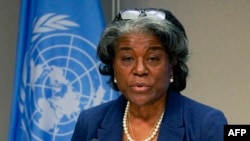Corruption destroys trust, undermines development, erodes confidence in democratic institutions and prepares the way for trans-national criminal activities. It hinders economic growth and distorts competition. It also adds an extra cost to doing business: according to the United Nations, globally, corruption swallows up as much as 5 percent of the gross domestic product. Corruption is universal and pervasive.
It exists in both the private and public sectors, rich and poor countries alike. Ultimately, it’s the people who suffer the consequences, which include higher prices, fewer resources invested in the public sector, exploitative working conditions, pollution, water and power shortages, physical violence, unsafe medicines and illegal logging and mineral extraction. And corruption disproportionately impacts the poor, the disadvantaged, and women.
In early June, the United Nations held a Special Session of the General Assembly that aimed to scale up the fight against corruption by implementing measures that would more effectively prevent, detect, prosecute, and punish corruption and strengthen international cooperation.
As stipulated in UN General Assembly resolution 73/191 of December 2018, Member States on June 2 adopted the action-oriented Political Declaration, a roadmap for the future. This document, which carries the title, “Our common commitment to effectively addressing challenges and implementing measures to prevent and combat corruption and strengthen international cooperation," builds upon existing architecture, particularly the 2003 United Nations Convention against Corruption, the only legally binding international anti-corruption treaty with a global scope.
“Today, the world is shining a spotlight on our shared efforts to prevent and combat corruption,” said United States Ambassador to the United Nations Linda Thomas-Greenfield.
“The United States strongly believes that we must defend, uphold, and revitalize the international anti-corruption framework. This Political Declaration is an important first step in the revitalization process. The fight against corruption begins with every country fulfilling its existing obligations, especially those enshrined in the UN Convention against Corruption, or “UNCAC”, a treaty that enjoys near-universal ratification,” she said.
“Now, the challenge for all of us is to turn these commitments into real, demonstrable actions. Our Political Declaration is rooted in this existing anti-corruption framework and reflects its well-established priorities,” said Ambassador Thomas-Greenfield.“It pushes us all to acknowledge our strengths – and weaknesses – to better fulfill our obligations and commitments under the convention.”






